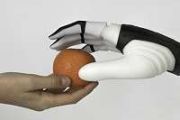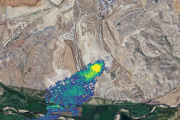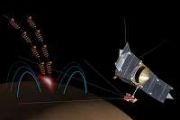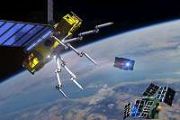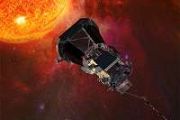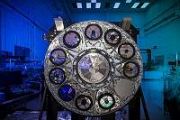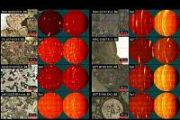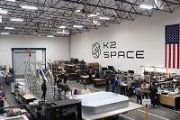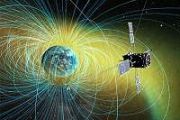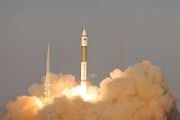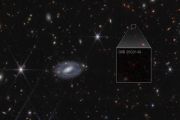
Copernical Team
What are Hubble and Webb observing right now? NASA tool has the answer
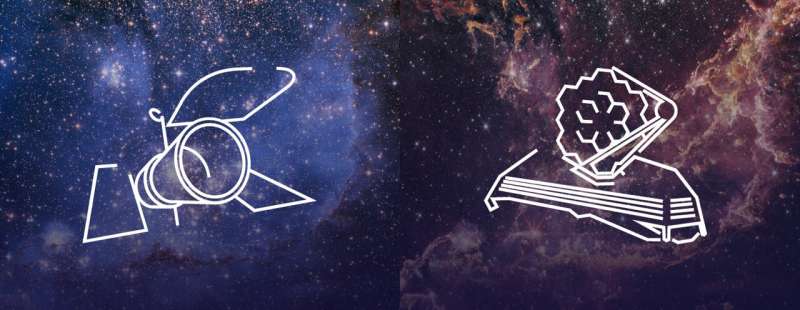
It's not hard to find out what NASA's Hubble and James Webb space telescopes have observed in the past. Barely a week goes by without news of a cosmic discovery made possible using images, spectra, and other data captured by NASA's prolific astronomical observatories.
But what are Hubble and Webb looking at right this minute? A shadowy pillar harboring nascent stars? A pair of colliding galaxies? The atmosphere of a distant planet? Galactic light, stretched and distorted on a 13-billion-year journey across space?
NASA's Space Telescope Live, a web application originally developed in 2016 to deliver real-time updates on Hubble targets, now affords easy access to up-to-date information on current, past, and upcoming observations from both Hubble and Webb.
Designed and developed for NASA by the Space Telescope Science Institute in Baltimore, this exploratory tool offers the public a straightforward and engaging way to learn more about how astronomical investigations are carried out.
With its redesigned user interface and expanded functionality, users can find out not only what planet, star, nebula, galaxy, or region of deep space each telescope is observing at the moment but also where exactly these targets are in the sky; what scientific instruments are being used to capture the images, spectra, and other data; precisely when and how long the observations are scheduled to occur; the status of the observation; who is leading the research; and most importantly, what the scientists are trying to find out.
SpaceX eyes March 14 for next Starship test launch
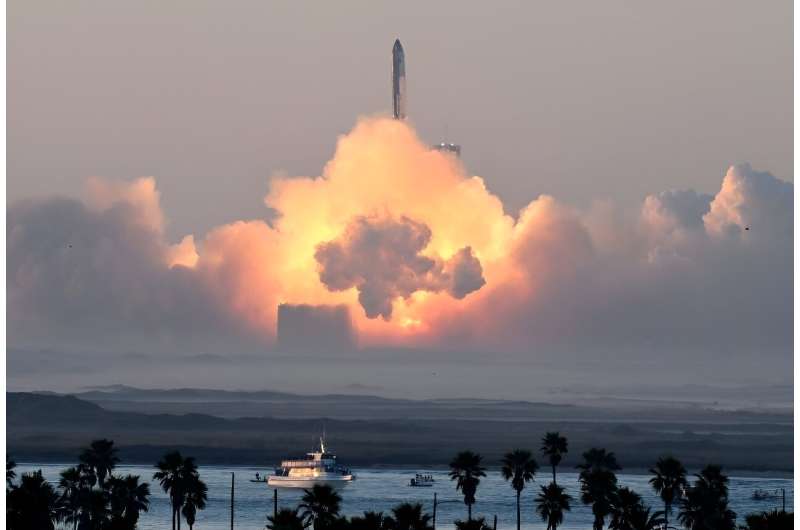
Elon Musk's SpaceX on Wednesday announced it was eyeing March 14 as the earliest date for the next test launch of its giant Starship rocket, with which it hopes to one day colonize Mars.
Two previous attempts have ended in spectacular explosions, though the company has adopted a rapid trial-and-error approach in order to accelerate development.
"The third flight test of Starship could launch as soon as March 14, pending regulatory approval," SpaceX posted on X, the social media platform also owned by Musk.
A statement on its website said the rocket, to launch from Boca Chica, Texas, would splash down in the Indian Ocean.
Study find potential benefits in AI–based systems for spotting hard-to-detect space debris
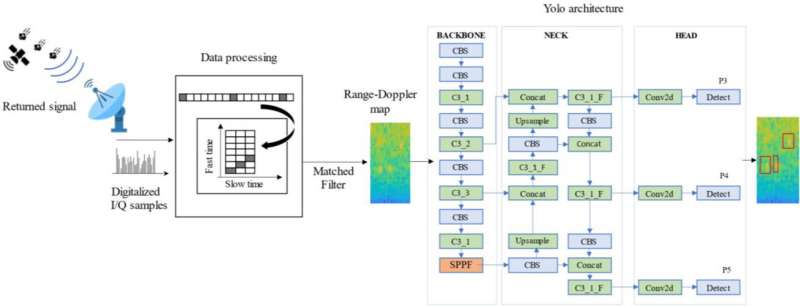
An increasing number of space objects, debris, and satellites in Low Earth Orbit poses a significant threat of collisions during space operations. The situation is currently monitored by radar and radio-telescopes that track space objects, but much of space debris is composed of very small metallic objects that are difficult to detect.
In a study published in IET Radar, Sonar & Navigation, investigators demonstrate the benefits of using deep learning—a form of artificial intelligence—for small space object detection by radar.
Scientists at uOttawa reveal how light behaves in formless solids
 For a long time, it was thought that amorphous solids do not selectively absorb light because of their disordered atomic structure. However, a new uOttawa study disproves this theory and shows that amorphous solids actually exhibit dichroism, meaning that they selectively absorb light of different polarizations.
Researchers at the University of Ottawa have found that using helical light be
For a long time, it was thought that amorphous solids do not selectively absorb light because of their disordered atomic structure. However, a new uOttawa study disproves this theory and shows that amorphous solids actually exhibit dichroism, meaning that they selectively absorb light of different polarizations.
Researchers at the University of Ottawa have found that using helical light be Tests show high-temperature superconducting magnets are ready for fusion
 In the predawn hours of Sept. 5, 2021, engineers achieved a major milestone in the labs of MIT's Plasma Science and Fusion Center (PSFC), when a new type of magnet, made from high-temperature superconducting material, achieved a world-record magnetic field strength of 20 tesla for a large-scale magnet. That's the intensity needed to build a fusion power plant that is expected to produce a net ou
In the predawn hours of Sept. 5, 2021, engineers achieved a major milestone in the labs of MIT's Plasma Science and Fusion Center (PSFC), when a new type of magnet, made from high-temperature superconducting material, achieved a world-record magnetic field strength of 20 tesla for a large-scale magnet. That's the intensity needed to build a fusion power plant that is expected to produce a net ou Building bionic jellyfish for ocean exploration
 Jellyfish can't do much besides swim, sting, eat, and breed. They don't even have brains. Yet, these simple creatures can easily journey to the depths of the oceans in a way that humans, despite all our sophistication, cannot.
But what if humans could have jellyfish explore the oceans on our behalf, reporting back what they find? New research conducted at Caltech aims to make that a realit
Jellyfish can't do much besides swim, sting, eat, and breed. They don't even have brains. Yet, these simple creatures can easily journey to the depths of the oceans in a way that humans, despite all our sophistication, cannot.
But what if humans could have jellyfish explore the oceans on our behalf, reporting back what they find? New research conducted at Caltech aims to make that a realit BrainChip Boosts Space Heritage with Launch of Akida into Low Earth Orbit
 BrainChip Holdings Ltd (ASX: BRN, OTCQX: BRCHF, ADR: BCHPY), a leader in neuromorphic AI technology, has successfully launched its Akida AI system into low earth orbit on the Optimus-1 spacecraft. This event, facilitated by the Space Machines Company, marks a significant advancement in the use of AI for space technology applications.
The Akida technology is integrated into the ANT61 Brain
BrainChip Holdings Ltd (ASX: BRN, OTCQX: BRCHF, ADR: BCHPY), a leader in neuromorphic AI technology, has successfully launched its Akida AI system into low earth orbit on the Optimus-1 spacecraft. This event, facilitated by the Space Machines Company, marks a significant advancement in the use of AI for space technology applications.
The Akida technology is integrated into the ANT61 Brain AI-enabled atomic robotic probe to advance quantum material manufacturing
 Scientists from the National University of Singapore (NUS) have pioneered a new methodology of fabricating carbon-based quantum materials at the atomic scale by integrating scanning probe microscopy techniques and deep neural networks. This breakthrough highlights the potential of implementing artificial intelligence (AI) at the sub-angstrom scale for enhanced control over atomic manufacturing,
Scientists from the National University of Singapore (NUS) have pioneered a new methodology of fabricating carbon-based quantum materials at the atomic scale by integrating scanning probe microscopy techniques and deep neural networks. This breakthrough highlights the potential of implementing artificial intelligence (AI) at the sub-angstrom scale for enhanced control over atomic manufacturing, BlackSky Secures Major Contract to Advance DoD's Moving Target Analysis
 In a significant development for defense technology and space-based surveillance, BlackSky Technology Inc. (NYSE: BKSY) has been awarded a multi-million dollar contract by the U.S. Department of Defense. This collaboration marks a pivotal step forward in the utilization of commercial motion imagery to train artificial intelligence models for tracking moving targets.
Under this contract, Bl
In a significant development for defense technology and space-based surveillance, BlackSky Technology Inc. (NYSE: BKSY) has been awarded a multi-million dollar contract by the U.S. Department of Defense. This collaboration marks a pivotal step forward in the utilization of commercial motion imagery to train artificial intelligence models for tracking moving targets.
Under this contract, Bl BAE Systems and EDF launch MethaneSAT to revolutionize global methane emissions monitoring
 BAE Systems (LON: BA) and the Environmental Defense Fund (EDF) have successfully launched MethaneSAT, a cutting-edge satellite designed to provide unprecedented insights into methane emissions across the globe. The launch, which took place at Vandenberg Space Force Base in California, marks a significant step forward in the fight against climate change, leveraging advanced satellite technology t
BAE Systems (LON: BA) and the Environmental Defense Fund (EDF) have successfully launched MethaneSAT, a cutting-edge satellite designed to provide unprecedented insights into methane emissions across the globe. The launch, which took place at Vandenberg Space Force Base in California, marks a significant step forward in the fight against climate change, leveraging advanced satellite technology t 








